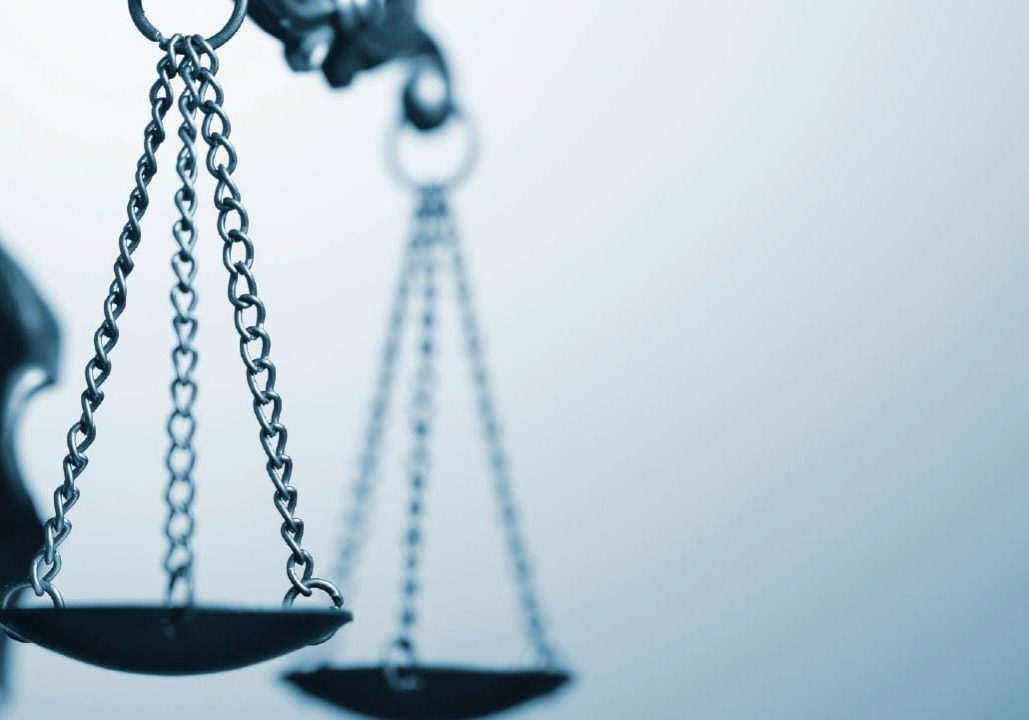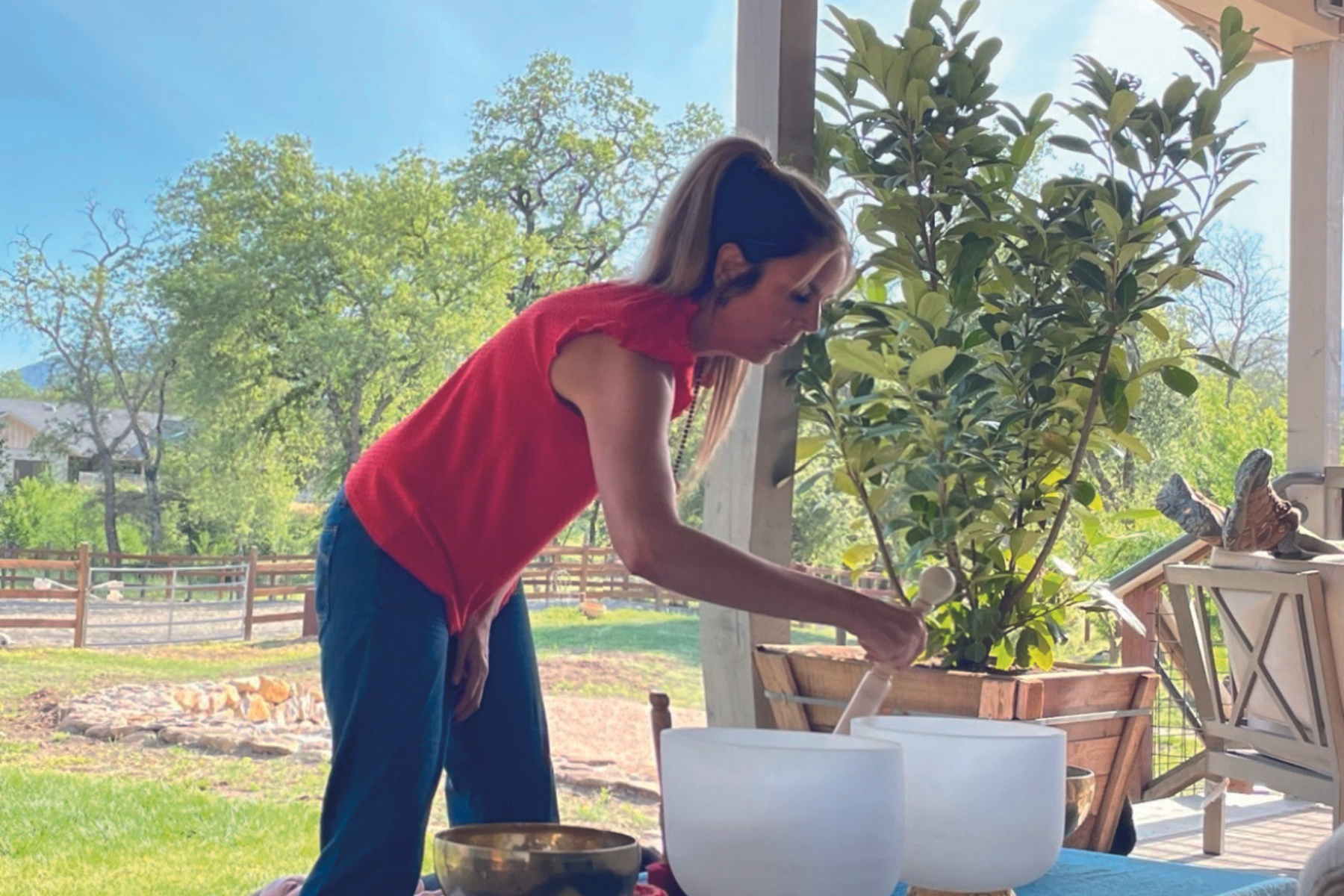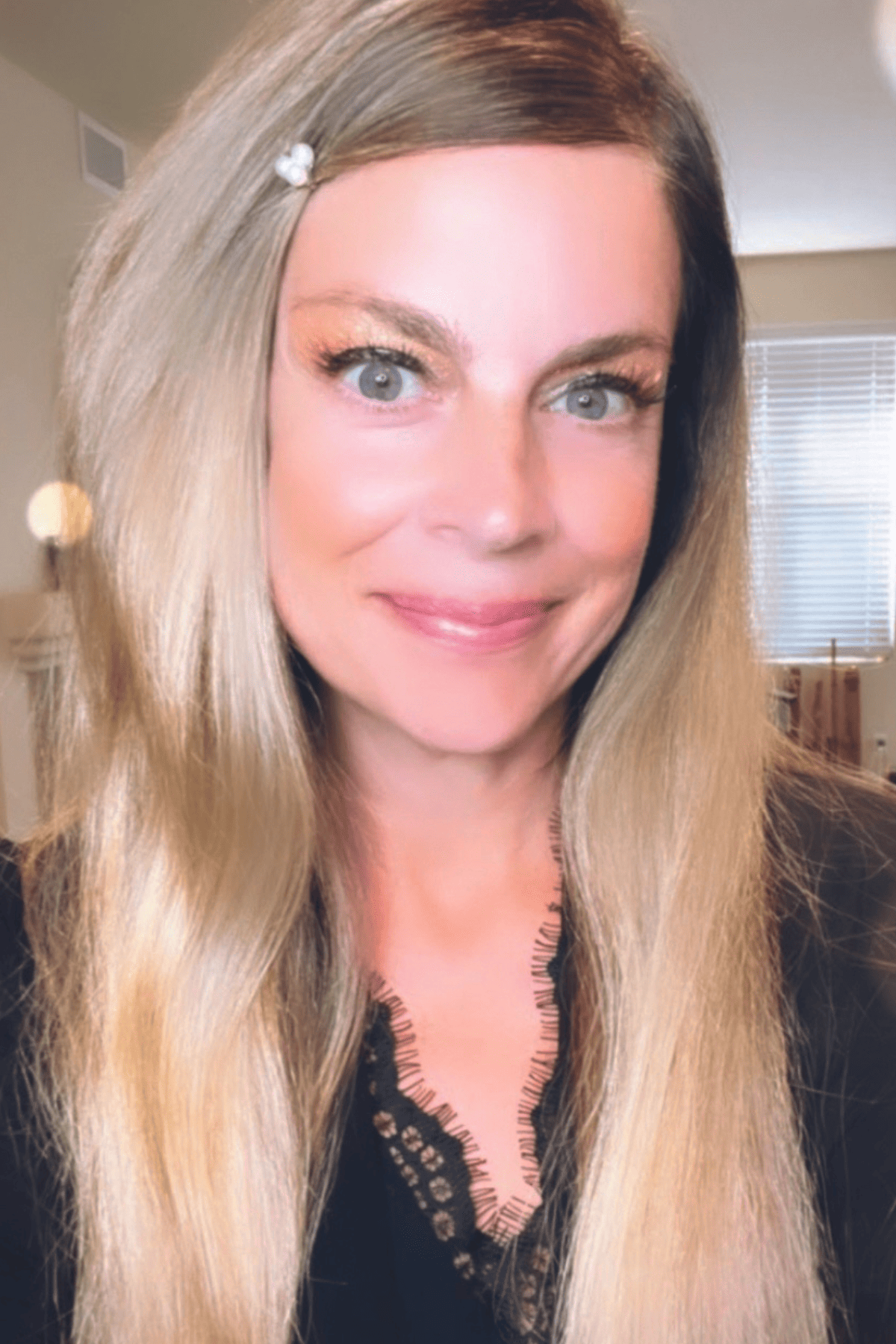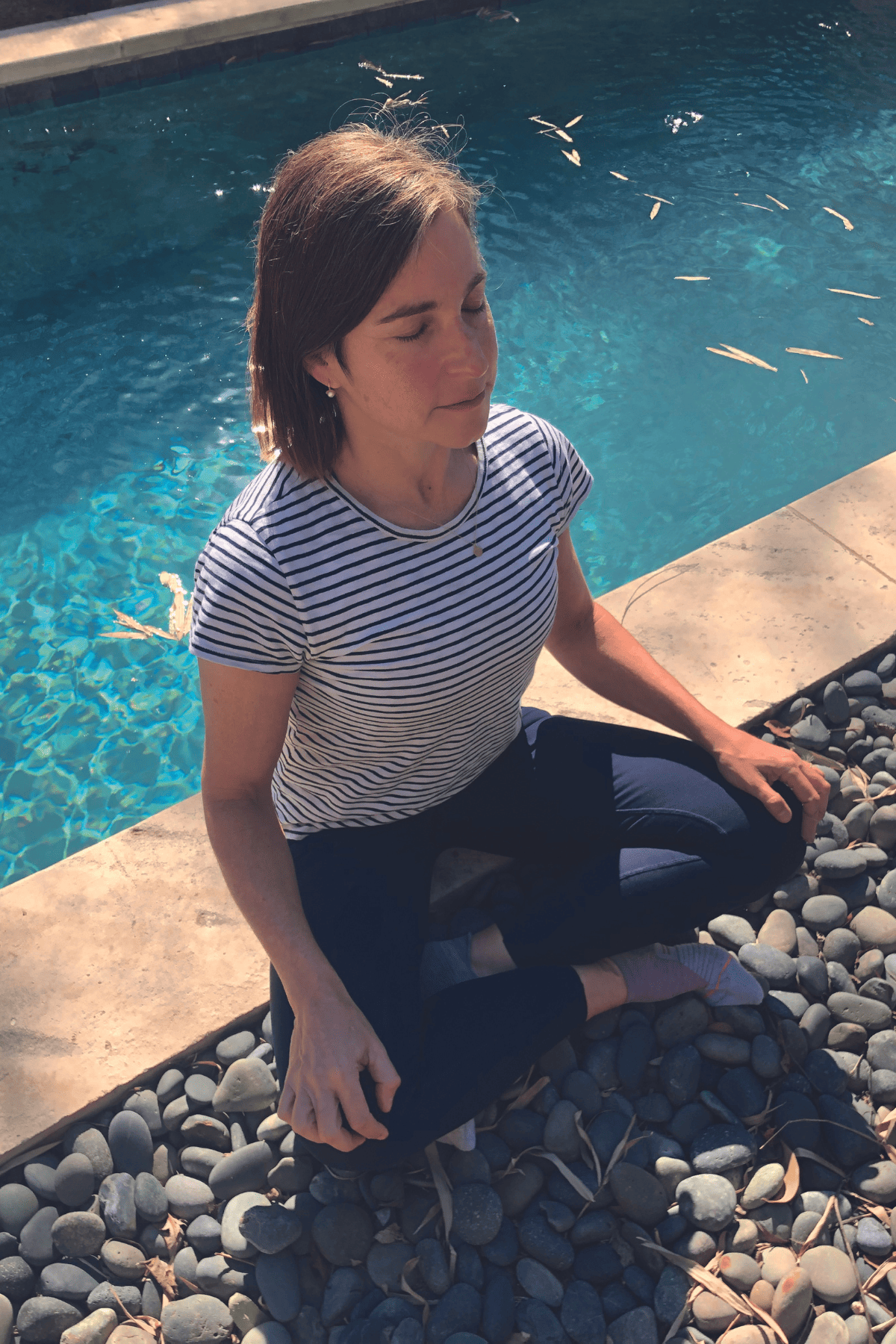
Judicial Wellness
Bringing the benefits of yoga, mindfulness and deep breathing into the high-stress environment of the courtroom
Reading time: 6 minutes
Judicial wellness may sound like a new US courtroom drama, maybe one you’d find on Netflix but with a bit of yoga and health thrown in for good measure. That’s not entirely inaccurate, though this isn’t a new TV show, it’s an actual wellness programme running in the USA, in courtrooms and other highly-charged legal environments across the country.
Anyone who’s been involved with a juvenile or family court, whether it be directly or through someone they know, will be familiar with all the pressures that entails.
It’s hard for all those caught up in the legal process — but what about the professionals who make things tick, the lawyers and the judges and the support staff, who are involved every single day?
Stigma for mental health is everywhere, but no one really knows about the effects of wellness on the bench. It’s an issue more important than ever as juvenile and family court judges are inundated with dockets and face critical decisions that affect children — even dealing with the effects of secondary trauma.
That’s why the National Council of Juvenile and Family Court Judge’s (NCJFCJ) judicial wellness initiative was launched in 2020 bringing some of the benefits of yoga into the courtroom.

Mindful morning moments
Jen Donovan, a registered yoga practitioner and teacher for more than 20 years, helped lead the judicial wellness initiative at the NCJFCJ, the nation’s oldest and largest judicial membership organisation. Through a series called ‘Monday Morning Moments’, she has coordinated the programming for judges, court professionals, lawyers, social services specialists and more, even leading some of the sessions herself.
She was with the NCJFCJ for 15 years and continues to consult with the organisation as a wellness specialist and has played a key role in the Monday Morning Moments initiative, an online wellness series that promotes judicial wellbeing. That means reaching some of the thousands of people in the court system who are working hard, in the best way possible, on behalf of children, families, survivors and victims of violence. Donovan, who’s also a certified raw food nutrition teacher, leads sessions on areas such as breathwork techniques, posture, yoga/chi-gong movement, plant-based whole foods education, meditation, and music sound therapy.

She’s been sharing her 23 years worth of knowledge by teaching at judicial national conferences, workshops, retreats, and online platforms for several organisations and their teams. During the global pandemic she shared her teachings through the zoom platform which enhanced her ability to work with fast-paced professionals.
“It's been an incredible few years… and not to mention teaching wellness, self-care and sound therapy at last year’s pilot Judicial Leadership Symposium. I am also doing a monthly zoom series with courtrooms that have been equally as effective.”
Reaching the legal eagles
Jen Donovan’s own experience working with the legal field is now vast, teaching at judicial conferences, workshops, institutes, as well as local wellness studios, retreat centres, and she also supports several national and local non-profit organisations.
Over the years, she’s worked with juveniles in custody, children who are in shelters and with many other individual clients across a broad spectrum of agencies in the judicial field.
They include the International Alliance for HOPE, International Chief of Police, International Association of Forensic Nurses, Courtroom Sciences, HSBA Well Being In Law Week for Hawaii for the Hawaii State Bar Association, American Judges Association National Conference, FCCJ Annual Education Conference (Florida Conference Circuit Judges) (450 judges), NJA (National Judges Association) Annual Education Conference, National Conference for Juvenile Justice, NCJFCJ Annual Conferences, Institute for New Judges, and several others…along with Monday Morning Moments from NCJFCJ.
“In my own community I now teach at the Reno Justice Courthouse monthly sessions on breathwork, movement and sound healing meditation,” she says. “During the pandemic I taught weekly yoga on zoom to teens that are held in an emergency shelter due to child abuse and neglect.”
Lessons in self-love
Donovan has dedicated her life’s work towards helping others to better regulate their stress levels, in order to centre themselves and make wiser decisions. It's her personal mission to humbly teach and reach as many judges, attorneys, case workers, probation officers, court clerks, psychologists, law enforcement and forensic nurses who are working with children and families who have undergone (or who are still undergoing) trauma.
She wants to provide access to simple self-care that all can benefit from. “Think of self-care practices as brushing your teeth. I feel we can create new healthy habits like proper yoga breathing if we can look at it from a healthy inside-out routine.”
During her sessions, Donovan shares her knowledge of a variety of practical resources because she believes that by accessing these time-tested tools, we all have the power to help create change.
She wants to be a part of the positive change in the lives of others by supporting the wellbeing of the people that not only work in the judicial system, but also the children and families who are affected by the system.
“Learn to give from your overflow,” she says. “If we can learn to love ourselves and fill ourselves up with our practices then we can come from our centre in a much kinder, more compassionate way.”

About the Judicial Wellness Initiative
From the moment judicial officers are on the bench, they are viewed as leaders in their respective communities. To be a more effective leader, one needs to have balance in their life as he or she navigates through the stressors and pressures inherent in the work. To better achieve a sense of equilibrium, people need practical tools they can access at any moment, as well as a support system
The National Council of Juvenile and Family Court Judges' Judicial Wellness Initiative is an opportunity for judges and related professionals to engage in conversations about what it means to be a judicial officer while developing practical tools necessary to avoid burnout and nurture personal resilience. The initiative is designed to support the process of increasing a judge’s quality of life off and on the bench.
A judicial officer who wishes to develop or enhance leadership skills can be a part of the wellness initiative to: develop the tools necessary to deal with stress and burnout; develop the equanimity and compassion needed to reach fair and just resolutions; apply a wisdom that is attained through an increased sense of awareness; listen attentively; and promote better outcomes for justice-involved children and families..
Some additional include tools judges and related professionals learn are:
Judicial Leadership
• Effective leadership styles
• How to have difficult conversations
• Avoiding and resolving conflict
• Creating an effective, responsive system through leadership
Wellness
• Understanding emotions
• Using breath work and movement to regulate the body
• Research-based mindfulness practices
• Developing empathy and compassion in the judicial setting
Engagement
• The judge's role is to serve the public with community outreach and leadership
• Connecting to diverse communities
Judge Ami Larson
Associate Judge (ret.), Travis County Civil District Courts, Texas
What is your involvement in the NCJFCJ judicial wellness initiative?
I have participated in various judicial wellness sessions hosted by the NCJFCJ, such as mindfulness and sound meditation, yoga and heathy eating.
Why do you think this initiative is important?
I think it’s critically important because juvenile and family court judges are especially focused on helping others, which often comes at the expense of taking care of their own health and wellbeing. Judges also experience secondary trauma on a regular basis from the work they do, so having opportunities to take time out to breathe and relax their bodies and minds is really necessary. The NCJFCJ offers a variety of wellness options that are easy for judges to work into their schedules and have a huge positive impact.
What is the single biggest benefit you've received from the practice of judicial wellness?
For me, judicial wellness has helped me to maintain a good perspective. Judges see heartbreaking situations daily and often have little ability to meaningfully help. It can be pretty depressing. Tending to my own physical and mental health has allowed me to see and be grateful for all the good in my life and never take any of it for granted.

Monday Morning Moments
Monday Morning Moments is the NCJFCJ’s wellness webinar series for judges and court professionals, and is sponsored by OurFamilyWizard. The goal of the NCJFCJ’s Wellness[1]Connection-Leadership Initiative is to promote judicial wellbeing and to help court professionals develop strategies to mitigate the impact of stress that is inherent in the work. It is vital to remember the power of connectedness and centring one's self for leadership. Participants share the NCJFCJ's mission, vision, and the confidence that there are thousands in the court system who are working, in the best way they can, on behalf of children, families, survivors and victims of violence.
Judge Janice M. Rosa (RET.)
Eighth Judicial District of New York, Eric County Supreme Court
What is your involvement in the NCJFCJ judicial wellness initiative?
I first started teaching a session more than 10 years ago for the National Council of Juvenile and Family Court Judges called ‘Balancing a Life of the Scales of Justice: Health and Wellbeing for the 21st Century Judge.’ I have presented this humorous, lighthearted, yet grounded in behavioural science session many, many times around the country. Several years ago, knowing my interest, I was asked to help plan a symposium or retreat for the NCJFCJ judges. I've been involved since.
Why do you think this initiative is important?
This initiative weaves the health sciences into the role of a judge as community leader, meant to increase our leadership capacity and understanding. Judges are in positions of trust and visibility in our communities, and I really believe we have a duty to lead both on and off the bench to improve the lives of families we serve. There is no other offering in the country for judges blending wellness with leadership, and geared to the juvenile and family law judge that the NCJFCJ offers.
What is the single biggest benefit you've received from the practice of judicial wellness?
The single biggest benefit? It’s so hard to choose one! All of them have allowed me to step more quickly and more often, with intention, into a space of quiet, of judging without being judgemental, and of leading with a sense of compassion. If I had to choose one practice it would be breathing, specifically ‘combat breathing’, a real term (google it!) which is just perfect for courtroom work and my ‘let’s get moving’ personality.





